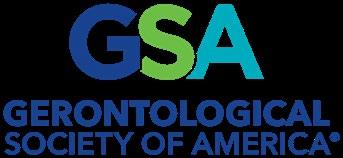Referral Form
Patient Information – To Be Completed by
Date
Check if primary contact
Patient Name
Address
City State Zip
Cell phone
Landline
Primary language: English Spanish
Other
Preferred Method of Contact:
Patient
Check if primary contact
Name of the person completing form for the patient and relationship to patient
Address
City State Zip
Phone
Primary language: English Spanish
Other
Preferred day/time to be contacted
Type of insurance
Patient Authorization to Be Contacted
I give permission to my doctor to share my information with an individual or organization who will contact me about support programs and other services.
Signature Date
The person being referred provided verbal consent instead of signature.
The person being referred was given an expert to contact, suggestions on types of services or care to request, and an FAQ document (pages 4 & 5 of this form).

Referral Information – For Use by Primary Care Team
Check all that apply. Highlight the most urgent one as the starting point for a referral.
Issue(s) Triggering Referral
Examples of Types of Professional to Receive Referral
Information and Education
Education of person with dementia or caregiver education
Legal and financial planning
Clinical trials information
Social worker, nurse, gerontologist
Attorney who can help with supported decision making, power of attorney for health care or finances, living wills, advance directives
Study coordinator
Managing Symptoms of Dementia
Quality of life improvement
Mental health and therapy
Neuropsychiatric symptoms (agitation, depression, hallucinations)
Clinical psychologist, gerontologist, occupational therapist, physical therapist, speech therapist, recreation therapist, music therapist
Clinical social worker, clinical psychologist
Geriatric psychiatrist, neuropsychologist
Addressing Comorbidities and Other Clinical Needs
Care consultation
Care or case management
Medication management
Safety (home, driving, guns)
c Functional loss
c Motor loss
c Hearing loss
c Vision loss
Nutrition (lack of regular nutrition, loss of appetite, dehydration)
Comorbid conditions (e.g., pain, arthritis, diabetes)
Clinical social worker
Case manager, care manager
Nurse, pharmacist
Occupational therapist
Speech -language pathologist, occupational therapist
Physical therapist, occupational therapist, physiatrist
Audiologist
Optometrist, ophthalmologist
Dietitian, nutritionist, dentist
Palliative care nurse or doctor, rheumatologist, endocrinologist
If referring within your organization, please indicate contact information for the qualified individual:
Name and Department
Contact Information (office phone)
If referring outside your organization, please indicate contact information for the qualified individual:
Name and Department

Contact Information (phone and email)
External Organizations for Referrals — For Use by Primary Care Team
Organization Contact Information Examples of Services Offered General Community- Based Organizations
Local Area Agency on Aging (AAAs)
Aging and Disability Resource Centers (ADRCs)
Aging Life Care Association
Family Caregiver Alliance
Find your local AAA by visiting eldercare.acl.gov or calling 1-800-6771116
Find your local ADRC by visiting eldercare.acl.gov or calling 1-800-6771116
Visit www.aginglifecare.org/ and click on the “Find an Aging Life Care Expert” button on the top right side
1-800-445-8106
www.caregiver.org/family -carenavigator
Coordinates and offers services to help older adults remain in their homes (e.g., homedelivered meals).
Provides information, advice, counseling, and assistance; helps people make informed decisions about long -term services and supports; helps people access public and private programs.
Provides contact information for geriatric care managers with backgrounds in social work, psychology, gerontology, or nursing.
Offers toll-free helpline to support caregivers, as well as a variety of programs that are searchable by state.
Dementia -Specific Organizations
Dementia Action Alliance Visit www.daanow.org
The Association for Frontotemporal Degeneration HelpLine: 1-866-507-7222 www.theaftd.org
Alzheimer’s Association
Alzheimer’s Foundation of America
Lewy Body Dementia Association
National Instituteon Aging: Alzheimer’s Disease Education and Referral Center

24/7 Helpline: 1-800-272-3900
www.alz.org/help-support
www.communityresourcefinder.org
National Helpline: 1-866-232-8484
alzfdn.org/caregiving -resources/
Lewy Line: 1-800-539-9767 www.lbda.org/support
Offers a range of services and supports including weekly virtual discussions, podcasts, a resources center, and more.
Offers support and practical tips for living with a frontotemporal degeneration diagnosis.
Offers a range of services including a 24/7 helpline, 24/7 Wandering Support for a Safe Return, support programs, education programs, and early -stage social engagement programs.
The Online Community Resource Finder can help people with dementia and their families find help in their communities.
Has a toll-free helpline staffed by licensed clinical social workers, educational online resources, and caregiver support groups.
Provides a variety of resources for families affected by Lewy body dementia, including an online community, support groups, peer -to -peer telephone and email support for caregivers, and educational resources.
Opportunities to Participate in Research Studies
Call 1-800-438-4380 or visit www.nia. nih.gov/alzheimers/clinical-trials
Publicly available online database to search for relevant clinical studies recruiting patients in local geographic area.
geron.org
Requesting Services
[Contact information to be provided by primary care team]
Name of organization:
Name and phone number of expert to call:
Here is an example of how to start the conversation “Hello, my name is [ ].
I was recently diagnosed with [example: dementia due to Alzheimer’s disease, mild stage] at [insert name of practice/clinic].
They recommended that I call you. I am calling for information on free education programs in my area [specify your area] .
I don’t think I need specific services at this time, just some education and to learn how you might be able to help me.”
Adapted from Wisconsin Alzheimer’s Institute University of Wisconsin School of Medicine and Public Health

